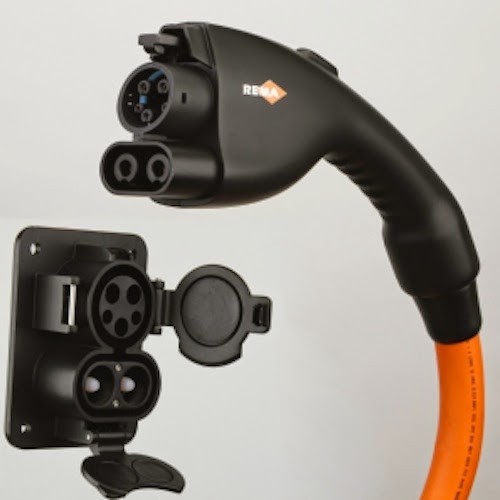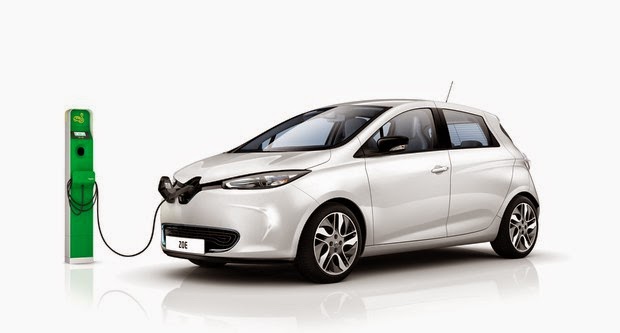Better Place has taken one of the more likely steps open to it, to shut down the company in a complete liquidation. After the company shut down its American and Australian operations, after a long period of struggles that saw the ouster of not only founder Shai Agassi, but the new CEO that was to replace him, and hints that Renault was no longer seeing a need to work with Better Place, it seemed clear to me that Better Place really didn’t have a Good Place from which to earn the revenue that would keep the company functioning.
On Sunday, Better Place filed for an orderly bankruptcy and liquidation in the Lod District Court![]() , in Israel, as well as to have a liquidator appointed to do so.
, in Israel, as well as to have a liquidator appointed to do so.
Better Place says that over the last six months, management has made “fundamental changes in the company, focused its strategy, goals and markets and at the same time has continued to seek additional financing for the business and secure additional models to supplement its current offer.” Some of those changes include the ouster of founder Shai Agassi![]() , layoffs, the new CEO being ordered to come up with a new business plan
, layoffs, the new CEO being ordered to come up with a new business plan![]() , the subsequent ouster of the new CEO, more layoffs, and the shutdown of all operations outside Israel and Denmark.
, the subsequent ouster of the new CEO, more layoffs, and the shutdown of all operations outside Israel and Denmark.
The core problem is anemic sales of electric cars that are compatible with the Better Place battery swapping system. After several years of R&D and an expensive build-out of battery swapping infrastructure in Israel and Denmark, there were perhaps 1000 Renault Fluence Z.E.’s sold in Israel. It had been thought Israel (and Denmark) was especially suited to battery swapping electric cars, because of the small size of the overall country and the relatively low per day driving patterns.
When it came time to sell cars, Better Place couldn’t deliver the customers. With few customers, there wasn’t enough revenue to pay for the company much less to pay off the investors or to do something like (gasp) actually earn a profit.
As we noted earlier (see links above) the crisis created six months of turmoil, layoffs, rewriting the business plan and more. In the end they couldn’t straighten the company out.
In my view Better Place was doomed from the outset, because it was founded on some uncertain assumptions. For example that battery packs would always remain expensive enough that electric car owners would be better off leasing than buying the battery pack. Another assumption is that the only way to get a rapid recharge was by swapping the battery pack.
While the first condition is still true, and will be for a few years, the second condition is rapidly changing. What seemed to be the harbinger of Better Place’s bankruptcy was Renault’s introduction of the ZOE last fall. In previous ZOE marketing literature, Renault talked about their plans for fast battery swapping in the ZOE, and to build a network of battery swap stations. However in last Septembers introduction of the production ZOE, there was no mention of battery swap, and instead fast recharge was accomplished with an intriguing and low-cost method of quick charging.
 The next phase of electric vehicle adoption has to be about fast recharge – and the manufacturers had a choice between battery swapping and quick charge. They have chosen quick charge rather than fast battery swap.
The next phase of electric vehicle adoption has to be about fast recharge – and the manufacturers had a choice between battery swapping and quick charge. They have chosen quick charge rather than fast battery swap.
Because Renault was Better Places’ sole car manufacturing partner, when Renault introduced the fast charging ZOE it hinted to me that Renault might back away from Better Place. But since then Renault has reaffirmed continued Fluence Z.E. manufacturing to support Better Place.
With the Better Place bankruptcy, Renault issued a statement saying: “Renault acknowledges the decision of Better Place’s Board of Directors. The Renault network in Israel and in Denmark will continue to provide after-sales servicing for Fluence Z.E. and these vehicles’ batteries. Electric vehicles are a revolution in mobility. Renault is exploring all the charging technologies from quick drop to several alternatives. This decision does not at all call into question the electric vehicle strategy of the Renault-Nissan Alliance. The Alliance is the world leader in terms of electric vehicles, and the volumes of Renault’s EVs continue to progress month after month.”
- Highway design could decrease death and injury risk, if “we” chose smarter designs - March 28, 2015
- GM really did trademark “range anxiety”, only later to abandon that mark - March 25, 2015
- US Government releases new regulations on hydraulic fracturing, that some call “toothless” - March 20, 2015
- Tesla Motors magic pill to solve range anxiety doesn’t quite instill range confidence - March 19, 2015
- Update on Galena IL oil train – 21 cars involved, which were the supposedly safer CP1232 design - March 7, 2015
- Another oil bomb train – why are they shipping crude oil by train? – Symptoms of fossil fuel addiction - March 6, 2015
- Chevron relinquishes fracking in Romania, as part of broader pull-out from Eastern European fracking operations - February 22, 2015
- Answer anti- electric car articles with truth and pride – truth outshines all distortions - February 19, 2015
- Apple taking big risk on developing a car? Please, Apple, don’t go there! - February 16, 2015
- Toyota, Nissan, Honda working on Japanese fuel cell infrastructure for Japanese government - February 12, 2015














